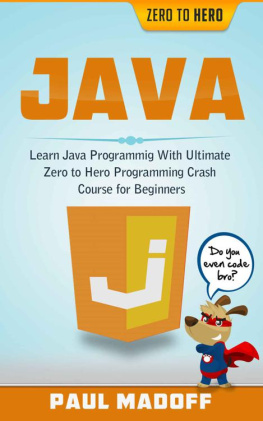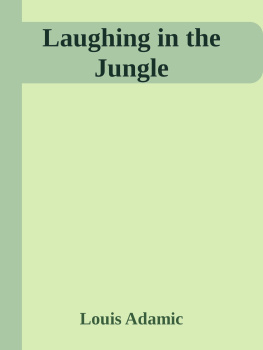CHAPTER I.
A SELECT COMMUNITY.
Mr. X., whose impressions and mild adventures I have undertaken the task of editing, has asked me to narrow his personal introduction to such limits as is consistent with the courtesy due to my readers, if haply I find any. He prefers, as his pseudonym implies, to remain an unknown quantity. I need only explain that he is an officer employed in one of the small States of the Malay Peninsula, which are (very much) under the protection of the Colonial Government of the Straits Settlements. The latter, with careful forethought for their ease-loving rulers, appoints officers to relieve them of all the cares and duties of administration, and absolves them from the responsibility of a Government somewhat more progressive in its policy than might commend itself to Oriental ideas, if left without such outside assistance.
As the title intimates, Mr. X.'s duties compel him to make his home in the jungle. The word has many significations in the East, where it is often used to express a region remote from civilization, although perhaps consisting of barren mountains or treeless plains. Mr. X.'s jungle, however, is one realizing what it represents to the untravelled Englishman. It is a land of hill and dale covered with thickly growing forest trees, with here and there by the side of the rivers, which are Nature's thoroughfares, or the main roads made by man, small oases of cultivation. It is a beautiful country, with a climate which those who live in itand they are the best witnessesdeclare to be healthy and agreeable. And the members of the small community who form the European population take a personal pride in the amenities of their beautiful retreat, with its perennial verdure, and glory in their "splendid isolation." Criticisms are resented, and suggestions of indisposition due to climatic influence held to be little short of traitorous. So, as may be imagined, it was a matter of no ordinary interest when X. not only complained of being unwell, but also developed signs of a chronic discontent. For X.no Mr. was necessary in that little round-table clubcertainly was unwell. Of this there could be no doubt, and such a condition of body was little short of an abuse of the privileges of the place. But since he could give no real explanation of his feelings, and only sighed vaguely when engaged in the daily preprandial game of billiards at the club, it was thought best to ignore his new departure, and to leave the subject severely alone.
However, the effect of this wise treatment was entirely ruined by the arrival of the doctor, who bore the sounding official designation of the Residency surgeon. This gentleman was wont to be sceptical in the matter of ailments, limiting his recognition only to honest, downright illness worthy of the attention of a medico whose name stood in front of a formidable array of honourable letters, too numerous for him to mention. But even really great people are not always strictly consistent, and occasionally make small lapses from the straight path of precedentand so this man of science deigned to cast an eye of interest upon the ailment of X. That it should be worthy of notice at all was enough for the companions of the now much-appreciated invalid, but when the great man added to his notice by bestowing a classical name, expressions of sympathy knew no bounds, and the unwonted solicitude was almost more than the sufferer could bear with the dignified attitude of conscious merit fitting to the occasion. Something rather distingu had happened to the place, something quite new. A vulgar complaint was a subject for reprobation and not sympathy, as casting discredit on this salubrious retreat, but a malady composed of two words out of the Greek Lexicon conferred a distinction perhaps unknown to, and to be envied by, the larger communities beyond the pass. The matter was most seriously discussed, and the decision arrived at that X. wanted a change. Not exactly that a change would do him good, but because, when he came back, the change, from the place he went to, to his happy home in Pura Pura, would work wonders for his health. As the doctor endorsed the former part of the verdict, rather modifying it by suggesting, that there were few conditions of health when a change would not be beneficial to a hard-worked official, there remained nothing but to select the spot to which X.his leave once grantedmust go. It would never, of course, do that he should go to Penang, or even to Hong Kong or Japan, such an expedition would be too ordinary and commonplace. It was felt that X. should do something worthy of the occasion, and show his appreciation of the place he lived in by going to one as similar in respect of people and scenery as could be found, and so, when the person chiefly concerned, knowing what was expected of him, suggested Java, the idea was accepted, and Java it was settled to be. And that night at the Club there was a long sitting, and Manop, the patient barman, had to record the disappearance of many extra "stengahs," as the matter was discussed in all its bearings. Those of the community who had been to Java recalled their experiences and recollections of that country, rather to the annoyance of those others whose travels, though perhaps more extended, had not led them in the same direction, and thus had to accept the unwelcome rle of silent listeners. However, goaded by long endurance, one of the party, the scene of whose stories mostly lay in the Antipodes, remarked that certainly when X. returned from Java he must write a book about it, because if he had only half as much to communicate as the present speakers, the book would be full of information. This little sarcasm was entirely spoilt by being taken literally, as it was at once decided that X. must write a book. Vainly he protested that it would be impossible to write a book after only a brief visit to a place, as he could only put into it what was already known to others; his objections were over-ruled, and he was reminded that only the other day, when H. E., the Governor, progressed (which is the official rendering of travelled) through a neighbouring State (known to those present only too painfully well, through many weary days spent in the jungles while exploring and actually constructing the path over which this "progress" was subsequently made), one of the party wrote a book which announced the discovery of a newly found place, and even went so far as to sniff severely at the presumption of those who had undergone these early days of toil, because certain grateful pioneers had named various landmarks after friends who had assisted them in the first months of settlement. "If that State, which we know so well, was discovered so recently," urged one of the speakers, "why not discover Java?" "And as for a fortnight being too brief a time," suggested another"did the Progress take longer?" And thus, it being an unwritten law in Pura Pura that the wishes of the community should be respected, X. having now returned from leave, has commissioned a chronicler to write about what he saw in Java, though it would be an easier task were the latter allowed to write about the community. But that must not beat any rate now. Java is the themethat, and no other.











![Nzenwa I. U - Java Basics: An intro to Java and the Java developement [development] environment](/uploads/posts/book/109245/thumbs/nzenwa-i-u-java-basics-an-intro-to-java-and-the.jpg)